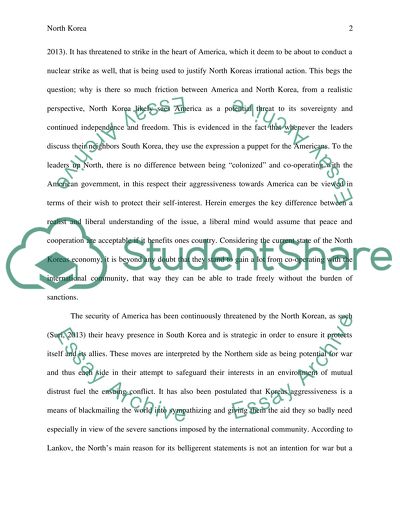Cite this document
(“North Korea Essay Example | Topics and Well Written Essays - 1750 words”, n.d.)
North Korea Essay Example | Topics and Well Written Essays - 1750 words. Retrieved from https://studentshare.org/history/1474497-north-korea
North Korea Essay Example | Topics and Well Written Essays - 1750 words. Retrieved from https://studentshare.org/history/1474497-north-korea
(North Korea Essay Example | Topics and Well Written Essays - 1750 Words)
North Korea Essay Example | Topics and Well Written Essays - 1750 Words. https://studentshare.org/history/1474497-north-korea.
North Korea Essay Example | Topics and Well Written Essays - 1750 Words. https://studentshare.org/history/1474497-north-korea.
“North Korea Essay Example | Topics and Well Written Essays - 1750 Words”, n.d. https://studentshare.org/history/1474497-north-korea.


